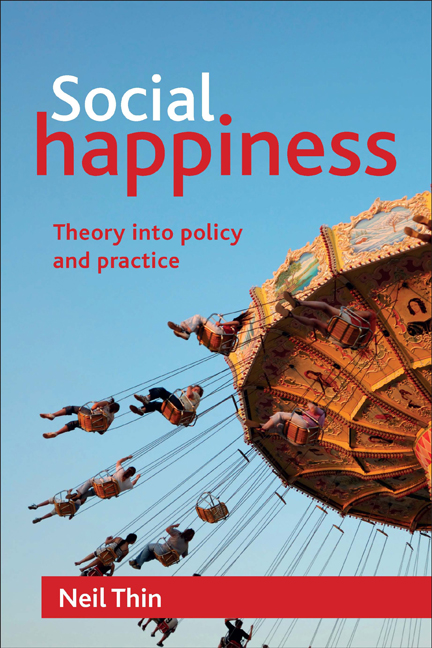seven - Assessing happiness: measurement and beyond
Published online by Cambridge University Press: 01 September 2022
Summary
Happiness makes up in height what it lacks in length. (Robert Frost)
Prosperity debates: the power of happiness indicators
In policy discourse, the assessment of public happiness is at the heart of the happiness movement's insistence that policy evaluators must look ‘beyond GDP’. But is this radical enough? Why substitute or complement one measurement exercise with another when the key weakness may have been the overemphasis on measurement itself, rather than the choice of measure? People often overrate numbers as the core tool in the process of political persuasion. They trot out claims like ‘if it isn't counted, it doesn't count’. But in reality, policies at all levels are much more influenced by stories, pictures, personal charisma, and arguments than they are by numbers.
Towards the end of 2010, there was feverish debate in the UK media on the wisdom and sincerity of Prime Minister David Cameron's decision, at a time of recession and massive cutbacks in public spending, to require the Office of National Statistics to conduct regular happiness surveys as part of national well-being assessment. What's odd is that, after so many decades of happiness surveys, this should be seen as a controversially novel idea. But the Canadian economist John Helliwell, who has for many years tirelessly tried to persuade his government to give happiness assessment a higher profile in policy making, argues that ‘What is or could be dramatically different in the UK is for the government not just to undertake more widespread and thorough collection of subjective well-being data, but also to give them a central place in the choice and evaluation of public policies. That would be a global first’ (Stratton, 2010).
There is, however, a puzzle at the heart of happiness scholarship. It has come to prominence in policy discourse, and is known to the public, via the number-crunching of surveys. We have finally come to believe that something so elusive as happiness can, after all, be represented numerically, and (still somewhat less confidently) that those numbers will be useful guides for policy.
- Type
- Chapter
- Information
- Social HappinessTheory into Policy and Practice, pp. 91 - 106Publisher: Bristol University PressPrint publication year: 2012



